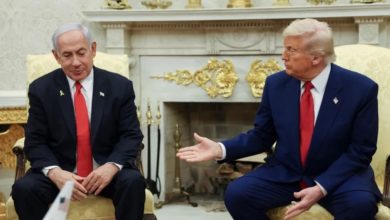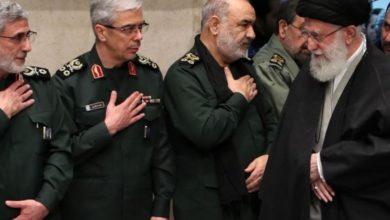Between Battlefields without War : Jordan’s Equilibrium in a Turbulent Middle East

Amid perilous threats along its borders, Jordan has had to find a delicate equilibrium in response to the wars that have reshaped the regional landscape, particularly since the American invasion of Iraq. Nowadays, twenty-two years after the launch of Operation Iraqi Freedom, Amman continues to grapple with Iraq’s turmoil, marked by persistent security instability and migration pressures. Similarly, the Syrian crisis that began in 2011 has generated serious security concerns for Jordan, with the growing influence of jihadist movements, the expansion of drug trafficking, and ongoing migration challenges.
Despite the fact that, since 1948, Jordan has become a refuge for many Palestinians displaced by the Nakba, the Hachemite Kingdom has also served as a host for Iraqi and Syrian migrants fleeing their respective homelands. Since 2023, the country has been directly affected by the regionalization of the war in Gaza, which has placed continuous pressure on its geopolitical balance and increased its vulnerability.[1] The war in Gaza has frequently raised concerns among the population, many of whom have Palestinian origins. Local testimonies suggest that Jordan’s position toward Israel is shaped by realism ; Israel’s military superiority has instilled fear among Jordanians about the potential consequences of another confrontation, which could have severe repercussions for the country’s already fragile economy, and, as a domino effect, for the population.[2]
Israel’s reshaping strategy has therefore had significant effects on both Jordan’s internal and external dynamics. On the domestic level, the Israeli-Iranian confrontation that led to the Twelve Days’ War in June 2025 turned Jordanian airspace into a battlefield between the two rivals, plunging the tourism sector into severe turmoil that has persisted since October 2023.[3] While Jordan has been accused of facilitating Israeli operations during the confrontation, the Jordanian government maintained that the decision to allow airspace access was strictly a matter of protecting its own sovereignty, reflecting Amman’s delicate balancing act between regional pressures and strategic independence. Moreover, the prolonged war in Gaza, along with statements made by members of the Israeli government, has contributed to raising questions about the Hashemite monarchy’s position, by reviving debates over the idea of a Palestinian homeland in Jordan in regional discourse. Combined with various domestic threats seeking to undermine political legitimacy, the revival of Islamist parties has become a growing concern for the authorities, as the war in Gaza has further unified diverse political movements from spontaneous protests to organized groups amid the growing prominence of street activism.[4] Although Jordan reaffirmed its opposition to Israel’s war in Gaza — even supporting South Africa’s legal case accusing Israel of genocide at the International Court of Justice — the kingdom remains aware of its fragile position, caught between Israel’s radicalism and U.S. pressure. Indeed, on the external front, Israel’s advanced defense doctrine in Syria continues to affect Jordan’s northern borders. The prospect of an Israeli expansion corridor extending toward As-Suwayda raises fears of a growing Israeli presence near the northern frontier of the Kingdom.
These mounting challenges have compelled Jordan to seek international support through diplomatic initiatives. Although King Abdullah II’s visit to Washington in February 2025 did not meet President Donald Trump’s expectations regarding the reception of Gazan refugees in the Kingdom, the U.S. President reaffirmed Jordan’s strategic importance in the Middle East. Similarly, French President Emmanuel Macron held a trilateral meeting with King Abdullah and Egyptian President Abdel Fattah Al-Sissi in Cairo last April to discuss regional stability, underscoring the strategic importance of these pivotal countries.
Previously, Jordanian foreign policy succeeded in safeguarding the country’s sovereignty by relying on cooperation with foreign actors such as the United States and major European powers, thereby legitimizing Jordan’s policy approaches toward the region. Cooperation and pragmatism with neighboring states were essential to address these geopolitical challenges. The alleged coup attempt in Jordan in 2021, followed by a series of arrests, alarmed both regional and international powers, raising fears of a potential policy shift and instability, which explains why the current King received at the time strong international support. The necessity of protecting Jordanian sovereignty vis-à-vis its neighbors explains why Jordan kept the Syrian embassy in Amman open throughout the Syrian conflict, maintaining a diplomatic channel with Damascus under Bashar Al-Assad’s rule, even while the Arab League suspended Syria’s membership, which was only restored in late 2023 through Saudi and Emirati-led initiatives. At the same time, pragmatism was necessary with both Saudi Arabia and Israel to minimize any diplomatic fallout with neighboring countries. Despite differences between Riyadh and Amman over the Gulf crisis between 2017 and 2021, the greatest challenges remain between Jordan and Israel. The two countries were in open conflict until 1994, when the peace agreement allowed Amman to benefit from U.S. economic and military assistance. Although the political theory of interdependence should, in principle, bring the two states closer together, Jordan’s vital sectors particularly water, electricity, and gas furnished in part by Israel, continue to fuel concerns about potential blackmail from Tel Aviv. At the same time, while the Jordanian government has faced internal pressure to denounce Israel’s actions and reconsider the 1994 normalization agreement, any challenge to this accord could backfire, as Israel could leverage its control over these essential resources to pressure Amman.[5] These Israeli pressures on Jordan’s stability have raised questions about the country’s future, particularly as water scarcity is expected to become a major concern in the coming years. The declining levels of the Dead Sea and the Jordan River—the region’s largest water flow—further exacerbate this issue.[6]
Despite having confronted the Iranian Axis of Resistance through the so-called Shia Crescent across Iraq, Syria, and Lebanon, this threat, although still present, has diminished with the decay of Iran’s forward defense strategy in the Middle East, while Israel has emerged as a major destabilizing actor in the region. Israeli actions in Gaza, the West Bank, and the broader Middle East continue to make Amman cautious. Growing opposition to Israel among the Jordanian population sustains a cold peace, which could deteriorate further in the event of Israeli geopolitical moves, particularly regarding the annexation of the West Bank[7] — a policy now officially encouraged in the Knesset through various political maneuvers since July 2025. At the IISS Manama Dialogue 2025, Jordanian Foreign Minister Ayman Safadi expressed skepticism about the new governance structure in Gaza without the inclusion of key Palestinian figures, while Israel’s military operations continued despite a new ceasefire brokered under Trump’s initiative, which ultimately undermined regional stabilization efforts.[8]
The Hachemite Kingdom has often assumed a leadership role in managing regional crises since the early 20th century, including those in Iraq, Syria, and Yemen. The latter two crises have been coordinated from Amman by the European Union Delegations and other International Organizations. The international community clearly recognizes Jordan’s pivotal role in the region, as numerous international organizations have their regional hub based in Amman. This demonstrates Jordan’s enduring importance in de-escalation and regional stabilization efforts. Continued international cooperation and support for Jordan remain essential to prevent further destabilization across neighboring conflict zones. As a pivotal state with significant geostrategic importance for the United States, serving as a key ally in protecting Israel and countering radicalism[9], Jordan’s internal and external stability remains crucial to maintaining it as the only state in the Bilad al-Sham (Levant) not directly affected by war, thereby helping to prevent a renewed regional destabilization.
Maxime Fritsch, Associate researcher at the CERMAM
References :
[1] International Institute of Strategic Studies (IISS). « Jordan’s navigation of the Hamas–Israel war ». Strategic Comments, Vol. 30, No. 3, 2024, pp. 1-3
[2] Informal interviews conducted with Jordanians across the country (September-November 2025)
[3] FRITSCH Maxime. « Jordanie et Égypte à l’épreuve de la guerre à Gaza et face à « l’axe de la résistance » ». CERMAM, 25 avril 2025 (https://cermam.org/fr/jordanie-et-egypte-a-lepreuve-de-la-guerre-a-gaza-et-face-a-laxe-de-la-resistance/)
[4] RYAN Curtis R. « Jordanian Islamists and the war on Gaza ». Mediterranean Politics, Vol. 30, No. 2, 2025, pp. 406-414
[5] ABU HAWASH Mohammad. « Jordan’s Dilemma : Between Israel’s Sword of Damocles and Iran’s Axis of Resistance ». Middle East Council on Global Affairs, 8 August 2024 (https://mecouncil.org/blog_posts/how-jordan-is-internalizing-israels-war-on-gaza-and-growing-regional-tensions/#:~:text=From%20the%20potential%20forced%20displacement%20of%20Palestinians%20from,with%20a%20wide%20array%20of%20potentially%20destabilizing%20forces.)
[6] GALGANO Francis A. « The 1964 Jordan River Diversion Plan : Transboundary Water Basins and Conflict ». Case Studies in the Environment, 2024, pp. 1-14
[7] KÖPRÜLÜ Nur. « 25 years of Jordan-Israel peace-making : from ‘warm peace’ to ‘cold peace’ ? ». Middle Eastern Studies, Vol. 57, No. 3, 2021, pp. 456-468
[8] SAFADI Ayman. Speech at the 21st Regional Security Summit IISS Manama Dialogue, 1 November 2025 (https://www.iiss.org/globalassets/media-library—content–migration/files/manama-dialogue-delta/2025/transcripts/p1/firstplenarysession_aymansafadi_asdelivered.pdf)
[9] CSICSMANN László. « The Role of External Factors in Regime Stability and Resilience-Building in the Multipolar Middle Eastern Region : The Experience of the Hashemite Kingdom of Jordan ». The Journal of the Middle East and Africa, Vol. 13, No. 2, 2022, pp. 158-161



